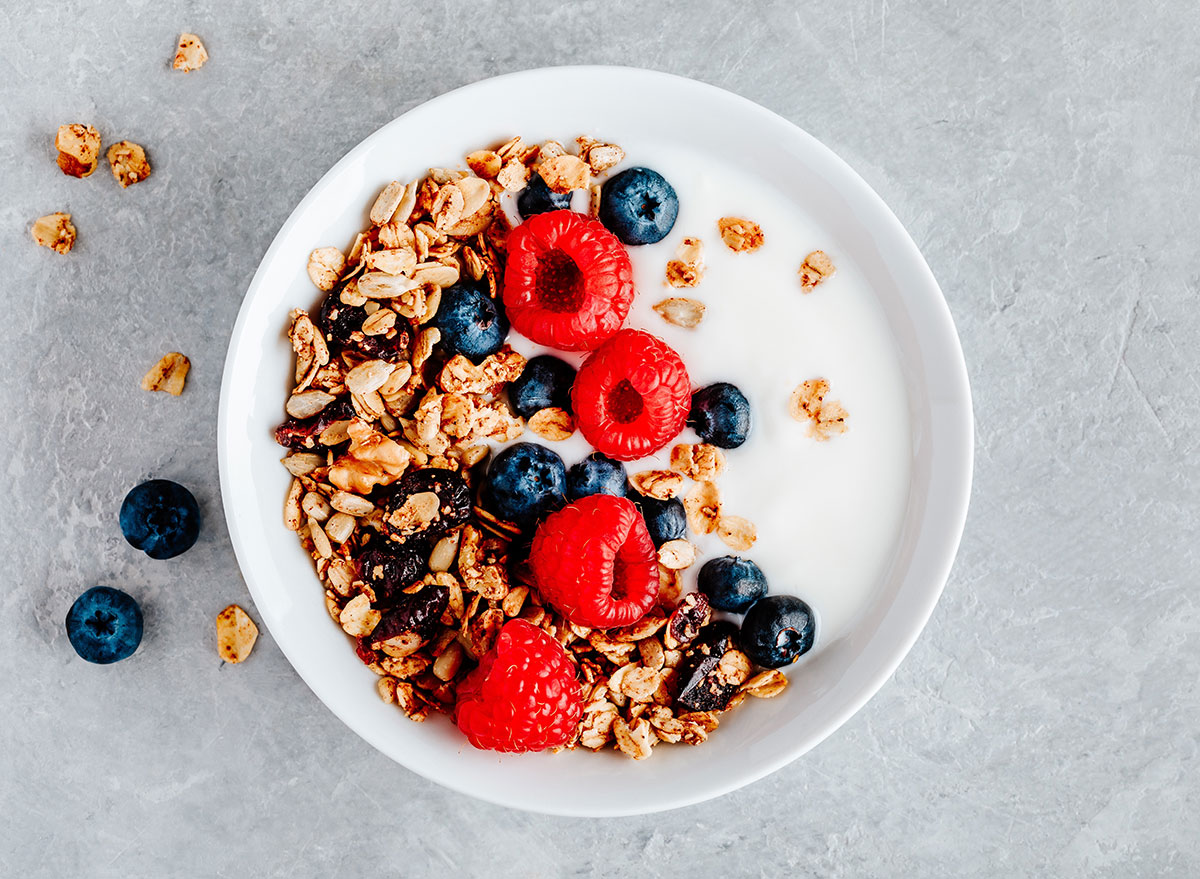The #1 Best Snack to Manage High Blood Pressure, New Study Suggests

Controlling high blood pressure, also called hypertension, is a major part of reducing serious health risks like heart attack and stroke. Strategies that help include regular physical activity, eating plenty of fruits and vegetables, and checking in with your doctor about medication. Now, it turns out that a delicious snack of yogurt may be part of that lineup, according to a new study in the International Dairy Journal.
Researchers looked at 915 people with hypertension who are taking part in a long-term study on aging, cardiovascular disease, and cognitive health. For nearly four decades, participants have been providing information on dietary habits, as well as health data such as blood pressure, cholesterol, and glucose levels—which all play a significant role in heart health.
The reason is likely because dairy products contain a range of micronutrients, and that includes calcium, magnesium, and potassium. Those three minerals are all involved in the regulation of blood pressure, according to the study's lead author, Alexandra Wade, Ph.D., a researcher in nutrition and cognition at the University of South Australia. But yogurt provides a unique boost compared to other dairy items like milk or cheese.
"Yogurt includes these minerals and also contains beneficial bacteria that promotes the release of certain proteins that have been associated with lower blood pressure," she says. "We found that those who consumed yogurt regularly had the strongest results in terms of lower blood pressure readings compared to those who didn't consume yogurt at all."
Keep in mind that this doesn't indicate that all yogurt is protective. Products that are high in sugar would most likely sabotage all of those good effects. For example, a recent study in the European Journal of Cardiology links too much added sugar in all foods to increased belly fat, which has been associated with higher risk of diabetes and heart disease.
In terms of why this happens, study co-author Lyn Steffen, Ph.D., director of public health nutrition at the University of Minnesota School of Public Health, says consumption of added sugar creates a biological environment in which excess sugar is converted into fatty acids. They get stored as triglycerides and lipids, usually in the abdomen.
She suggests checking labels—not only on yogurt but also on all products that may contain added sugar—to make sure your snack choices are doing you more good than harm. The recommendation is to limit added sugar to less than 10% of your daily calories.
Everything you need to know about yogurt:
- 26 Things You Can Make with Yogurt
- Surprising Side Effects of Eating Yogurt, Says Science
- The 20 Best and Worst Greek Yogurts, According to Dietitians
To get all of the latest news delivered straight to your email inbox every day, don't forget to sign up for our newsletter!








